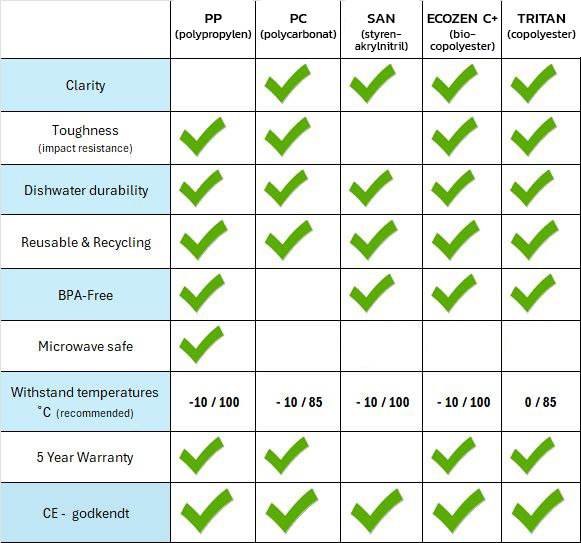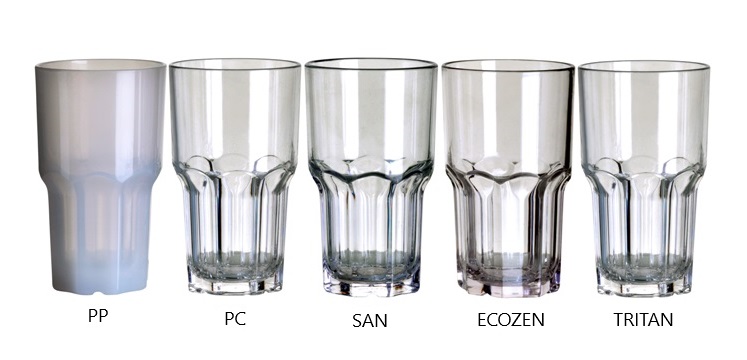The plastic we use
glassFORever works with several different types of plastic that we made sure are approved for food.We continuously check and test all our products. We also follow developments where we test new products and new types of plastic in order to constantly optimize our own products so that they meet the latest recommendations for food and environmental requirements in Denmark and the EU.We have the following types of plastic in our range:   BPA Due to its widespread use, Bisphenol A is one of the world's most thoroughly tested substances. Within the past 20 years, Bisphenol A has been the subject of repeated risk assessments carried out by the experts of EFSA (European Food SAfety Authority). New assessments, hearings ad tests are carried out both nationally and internally. EFSA has prepared a new assessments of Bisphenol A based on the latest scientific literature in the field and recommends a new and lower limit for safe intake of Bisphenol A of max. 0,2 nanograms pe kg of bodyweight per day. This is 20000 times lower than the previous limet of max 4 micrograms ( 4 millionths of a gram) per kg bodyweight per day from 2015 ( source DTU). glassFORever follows closely the assessments of Bisphenol A by Danish and international experts. All glassFORever PC products comply with the limit value for BPA. |
